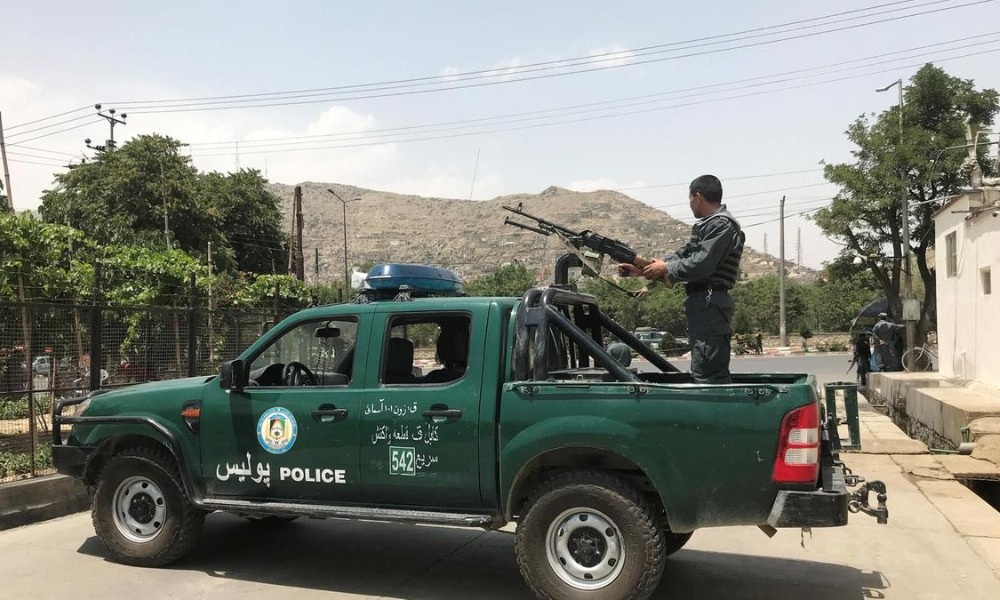Kabul security ramped up as Taliban issues warning against ‘occupying forces’

Kabul security was ramped up on Saturday as the city braced for attacks by the Taliban due to the presence of foreign troops in the country – despite the May 1 withdrawal deadline agreement signed last year between the US and the Taliban.
An increased military presence and security at checkpoints were visible in the Afghan capital, and a security source told Reuters the city had been placed on “high alert”.
Military patrols and security were being increased in main cities around the country, the source said.
On Saturday morning, Taliban spokesman Zabiullah Mujahid tweeted that the US troops presence was in violation of the agreement and that the group reserved the right to take action against the “occupying forces”.
“As withdrawal of foreign forces from Afghanistan by agreed upon May 1st deadline has passed, this violation in principle has opened the way for IEA Mujahidin to take every counteraction it deems appropriate against the occupying forces,” Mujahid tweeted.
“The Mujahidin of IEA (Taliban) will now await what decision the leadership of Islamic Emirate takes in light of the sovereignty, values and higher interests of the country, and will then take action accordingly, Allah willing,” he said.
Under the Trump administration’s February 2020 deal with the Taliban, foreign forces were to withdraw from the country by May 1 while the Taliban held off on attacking foreign troops and bases.
But US President Joe Biden announced last month after reviewing the situation that forces would stay in the country for months beyond May, withdrawing by September 11.
While the Taliban did not attack foreign forces in the year following the signing of the agreement, the group continued to carry out attacks against the Afghan security forces and Afghan civilians.
In recent weeks, more than 100 Afghan security force personnel have been killed. On Friday alone, a massive truck bomb in Logar killed dozens of people.
Washington has however warned that if foreign forces were attacked while carrying out the withdrawal they would defend themselves “with all the tools at our disposal”.
Experts said the Taliban threats should be taken seriously, but a number of factors meant that full-scale attacks against foreign targets could be averted, as the Taliban continued negotiations.
“We can’t rule out attacks,” Michael Kugelman, deputy director of the Asia Programme at the Woodrow Wilson Center in Washington told Reuters.
“That said, the Taliban is less likely to attack foreign forces now that it knows there is a specific date when they will be leaving.”
In the lead up to May, sources said there was a flurry of meetings and negotiations continued with the Taliban to try to get them to agree to a deadline extension.
The U.S. special envoy for Afghanistan, Zalmay Khalilzad, met with the Taliban’s head of political office, Mullah Baradar, in Doha, a Taliban spokesman said on Friday.
Also on Friday, the eve of the May 1 deadline, envoys from Russia, China, Pakistan and the United States held meetings with Taliban officials and Afghan government negotiators in the Qatari capital. The Taliban said they discussed the peace process and their request that Taliban leaders be removed from sanctions lists.
Sources also said that a delegation of Taliban political leaders had been in Pakistan’s capital Islamabad this week, Reuters reported.
Two Taliban sources and one official source told Reuters negotiations had revolved around the proposed deadline extension in exchange for the United States not getting involved in Afghan military operations against the Taliban; getting the Taliban to commit to re-joining the Turkey conference if they were provided with an agenda on what would be discussed there; and possibly declaring a ceasefire over the upcoming Eid holiday.
